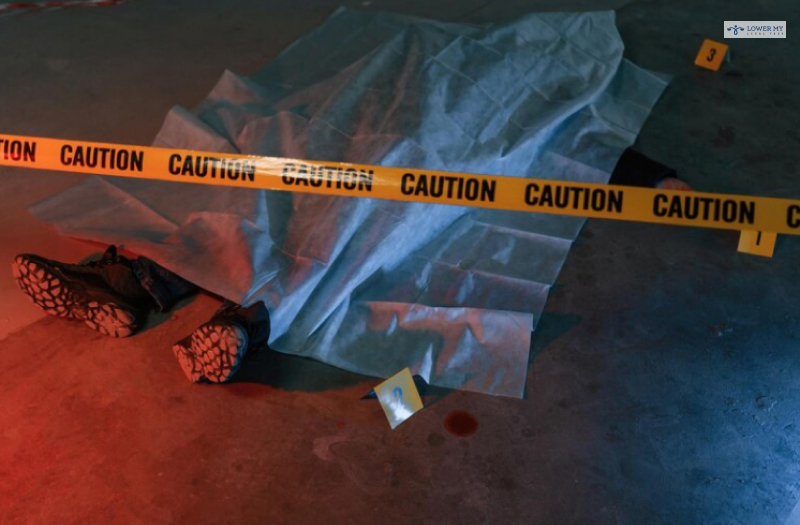Homicide is a word that instantly sends shivers down your spine. It’s a tragic and deeply serious matter, but there’s a specific term in the legal world that you might not be familiar with reckless homicide.
In this guide, we’re going to break it down for you, explain what it means, and give you the lowdown on the key aspects.
What Is Reckless Homicide?

When we hear the word “homicide,” it’s like a thunderclap, echoing with the gravity of a life lost. But what about “reckless homicide”? It’s a term that might not be as familiar, and today, we’re going to dive into this legal concept, break it down, and understand what it means.
Reckless homicide, also known as involuntary manslaughter, is a legal term that describes a situation where someone unintentionally causes the death of another person due to their reckless or negligent actions. In other words, it’s when someone didn’t set out to kill anyone but ended up doing so because of their careless behavior.
Recklessness vs. Negligence
To grasp the concept fully, you need to differentiate between recklessness and negligence. Recklessness implies that a person consciously ignores a substantial risk that their actions could lead to harm or death. They knew the danger and proceeded anyway. Negligence, on the other hand, involves a failure to exercise reasonable care. This means that the person didn’t take the precautions they should have, given the circumstances. Both recklessness and negligence can lead to a charge of reckless homicide, but they differ in terms of intent.
Degrees of Reckless Homicide
Here’s where it gets a bit more intricate. In many legal systems, reckless homicide can be categorized into degrees. This classification is based on the level of recklessness and the specific circumstances of the incident. First-degree reckless homicide often involves a high degree of recklessness, and it may be accompanied by aggravating factors. Second-degree reckless homicide generally has a lower level of recklessness, but it still results in death due to negligence. The specific definitions and classifications can vary by jurisdiction.
What Is The Sentence For Reckless Homicide?

So, you’ve heard the term “reckless homicide,” and you’re probably wondering, what’s the price to pay for such a grave offense? Well, it’s a complex matter with a wide range of potential consequences. Let’s dive into the details and break it down.
Imprisonment: Behind Bars
One of the most common penalties for reckless homicide is imprisonment. The length of the sentence can be quite variable, depending on a slew of factors. In some cases, it might mean a relatively short stint behind bars, while in more severe cases or in jurisdictions with stricter sentencing guidelines, it could result in a substantial prison term.
Probation: A Second Chance
In certain instances, a judge may opt for probation as an alternative to, or in addition to, imprisonment. Probation typically comes with a set of strict conditions, which might include regular check-ins with a probation officer, mandatory counseling, or community service. Failure to comply with probation terms can lead to imprisonment.
Fines: Paying the Price
Fines are another common form of penalty for reckless homicide. The amount can vary significantly based on the jurisdiction and the specifics of the case. These fines are designed to serve as both punishment and financial restitution to the victim’s family.
Restitution: Making Amends Regarding Reckless Homicide
Restitution is a crucial aspect of the sentence. It’s about making amends to the victim’s family. This may involve covering funeral expenses, medical bills, or other financial losses incurred as a result of the crime. The court determines the amount, taking into account the individual circumstances.
Aggravating Factors: Up the Ante
The presence of aggravating factors can escalate the severity of the sentence. These are circumstances that make the crime even more serious. For example, if the reckless homicide involved a deadly weapon, multiple victims, or occurred during the commission of another crime, the sentence can become significantly more severe.
Defenses and Mitigating Of Reckless Homicide: Navigating the Terrain
It’s essential to understand that there are defenses and mitigating factors that can influence the sentence. These may include arguments that the defendant’s actions were not reckless, that they had no intent to cause harm, or that there were extenuating circumstances. The choice of defense strategy hinges on the unique circumstances of the case.
Possible Legal Defenses To Reckless Homicide

Reckless homicide is a serious charge, and if you find yourself facing it, you’ll want to know your options. In the world of criminal defense, there are various strategies that can be employed to challenge a reckless homicide accusation. Here, we’re going to explore some possible legal defenses that could make a difference in your case.
1. Lack of Recklessness
The cornerstone of a reckless homicide charge is, well, recklessness. One possible defense is to argue that your actions were not, in fact, reckless. This may involve presenting evidence to show that you did not consciously disregard a substantial risk that your actions could lead to harm or death. It’s all about demonstrating that your behavior didn’t meet the criteria for recklessness.
2. No Causation
Another avenue for defense is to challenge the link between your actions and the resulting death. In some cases, it might be argued that the death was not directly caused by your actions. To establish this defense, you’ll need to show that there were other intervening factors or causes that played a significant role in the tragedy.
3. Self-Defense or Defense of Others
Sometimes, a claim of self-defense or defense of others can be a valid defense in a reckless homicide case. If you genuinely believed that your actions were necessary to protect yourself or someone else from imminent harm.
Moreover, the force used was proportionate to the threat, it could be a viable defense.
4. Involuntary Intoxication
Intoxication, especially involuntary intoxication, can be a defense. If you were unknowingly drugged or intoxicated against your will and your actions were a result of that involuntary intoxication.
Moreover, it might be a valid defense, as you lacked the necessary intent for a reckless homicide charge.
5. Mental Incapacity
If you can demonstrate that you were suffering from a mental disorder or incapacity at the time of the incident that prevented you from understanding the consequences of your actions, it could be a viable defense.
Moreover, this could lead to a reduced charge or sentence.
6. Mistaken Identity
In some cases, the defense of mistaken identity can be used. This defense argues that you were not the person who committed the reckless act resulting in homicide.
Moreover, solid alibis and witness testimony can be crucial in supporting this defense.
7. Alibi
An alibi defense asserts that you were in a different location at the time the homicide occurred, and therefore, you couldn’t have committed the crime.
Moreover, solid evidence and witnesses corroborating your alibi are vital for the success of this defense.
8. Necessity
The necessity defense involves arguing that you had no choice but to commit the reckless act to prevent greater harm.
Moreover, this defense can be complex and often requires demonstrating that there was a real and imminent threat that required your actions.
9. Consent
In rare cases, the defense of consent can be employed if the victim knowingly and willingly participated in the reckless activity that led to their death.
Final Thoughts On Reckless Homicide
Reckless homicide is a complex legal concept that varies from place to place, but its essence remains the same: it involves the unintentional taking of another person’s life due to reckless or negligent behavior.
Moreover, understanding the nuances and potential consequences of reckless homicide is crucial, as it can have a profound impact on both the accused and the victim’s family. This guide is just a starting point, and if you find yourself involved in a case related to reckless homicide, consulting with a criminal defense lawyer is essential to navigate the intricacies of the law.
Read Also:






